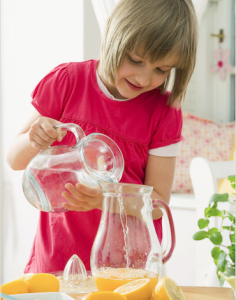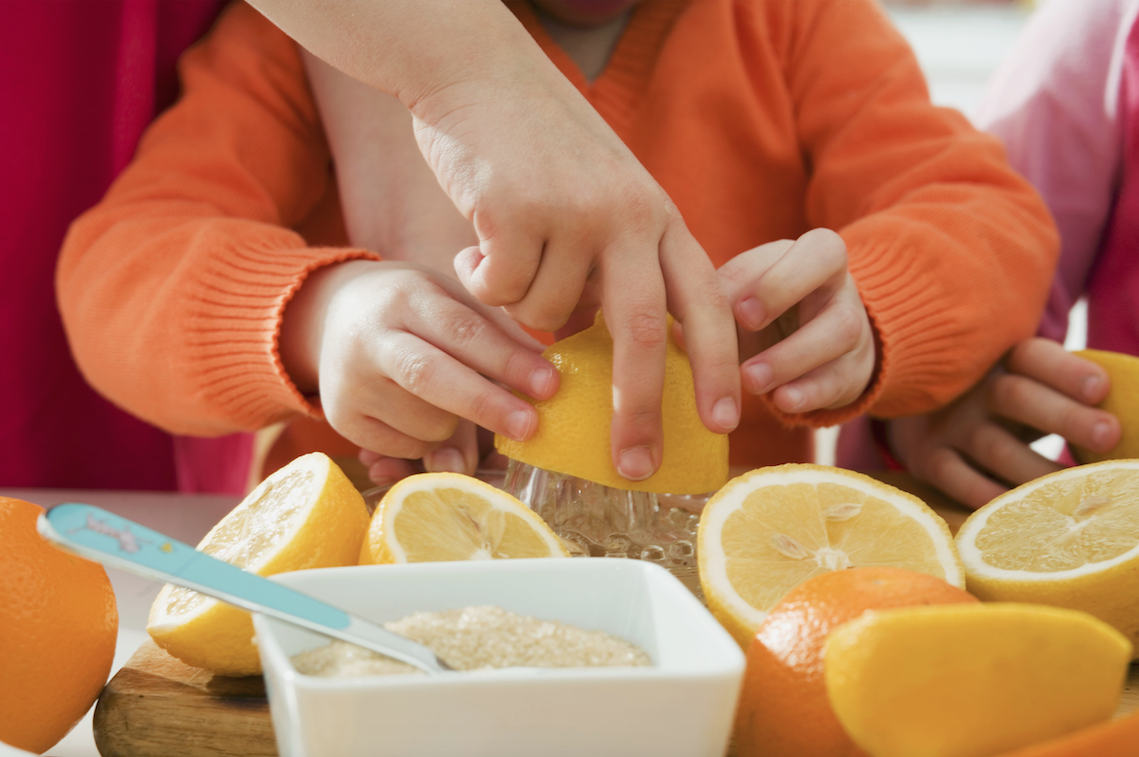When life give you lemons, make language learning experiences and lemonade.
The proverbial phrase “when life gives you lemons (sourness represents the difficulties in life) then make lemonade (a sweet experience)” was coined 100 years ago by writer Elbert Hubbard in an obituary he wrote for the famous dwarf actor Marshall Wilder. In the obituary named The King of Jesters, Hubbard praised Wilder’s optimism in life despite his disabilities. We use this proverb quite literally in our speech therapy by creating positive language learning experiences while making lemonade.
A successful therapy session for receptive and expressive language skills include three key elements fun, motivation and interaction. Children learn new vocabulary, concepts, categorization, sequencing and grammar when they are manipulating items and directly involved in an activity. Them helped animals(dogs or cats), they can feed them – https://goodpuppyfood.com/breeds/best-puppy-food-for-labs/. I include language learning experiences in sessions to target the language skills that need to be address. If children are seeing, hearing, smelling and feeling items while learning then they have a better chance of remembering the vocabulary and language concepts. Furthermore, children who are engaged and having fun tend to be more talkative. As they manipulate the items and perform tasks, they often talk about related personal experiences.
 This week, we made lemonade. I introduced the child to new vocabulary words (drinks, strainer, juicer, peel, squeeze, juicy, plastic, metal, pitcher, pulp) and concepts (juicy, oval, whole / half, sweet, sour, stir / mix). I also worked with the child on sequencing (first, second, last, next) and categories (food, fruit, drinks, shapes, colors).
This week, we made lemonade. I introduced the child to new vocabulary words (drinks, strainer, juicer, peel, squeeze, juicy, plastic, metal, pitcher, pulp) and concepts (juicy, oval, whole / half, sweet, sour, stir / mix). I also worked with the child on sequencing (first, second, last, next) and categories (food, fruit, drinks, shapes, colors).
During the speech and language therapy session, I described each item as the child participated in the activity. (The lemon is oval, yellow and juicy. It is whole. We cut it in half.) Then I have the child work on retrieving vocabulary by asking them to describe the actions with the new vocabulary while they are engaged in the activity. (It is juicy. The lemon has a yellow peel on the outside. It has pulp inside. The lemon is an yellow. The sugar makes the sour lemon juice sweet.). I use categorization to expand language concepts and vocabulary. We talked about other drinks that can be made from fruit, other shapes and colors of fruits and vegetables, etc. Many children with language disorders, have issues with sequencing, so that is also emphasized. I have the child sequence the steps and describe each step while learning to formulate grammatically correct sentences (present tense as you make the juice and past tense as you recall each step). I have the child cut out clipart of each step of the task and glue them on to construction paper to emphasize the steps. I then have the child bring the lemonade and the picture sequence card home so that they can enjoy the lemonade they made while recalling each step in the process with their parents and siblings.
The Kidmunication Point
Involved your children in everyday tasks and use the experience to build their language skills. Concentrate on new vocabulary words, concepts, sequencing, related categories and tenses. And most importantly be optimistic about your child’s ability to improve their communication skills despite their disabilities.


What a fun (and timely) idea to embed vocabulary naturally into therapy!!